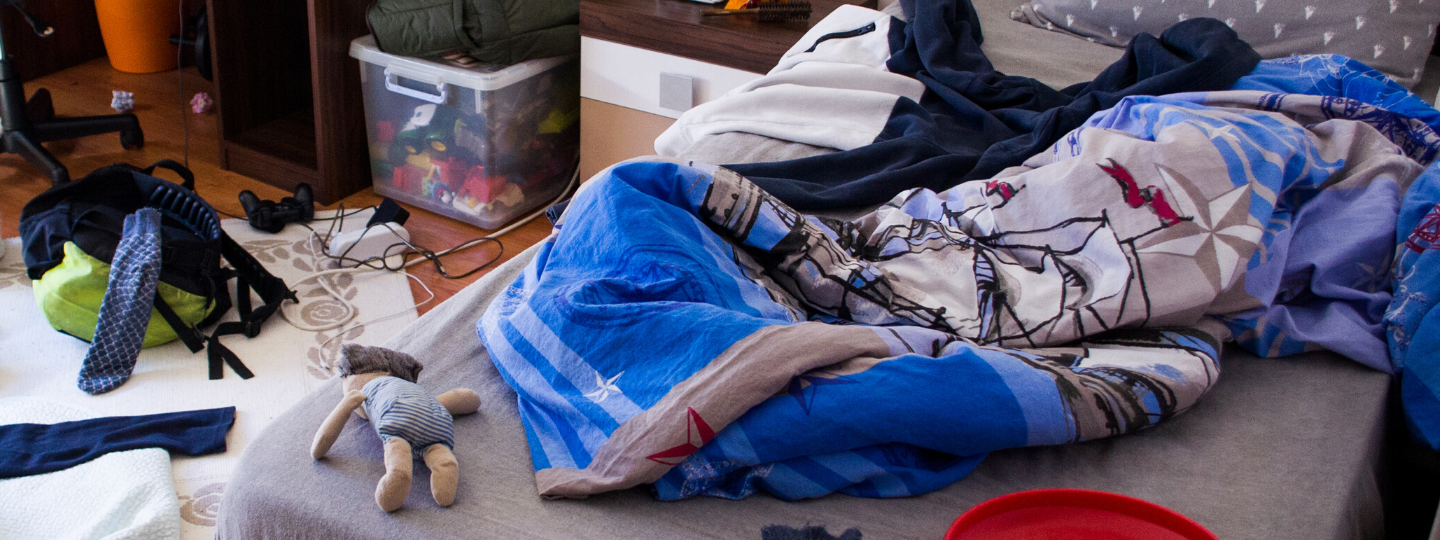Sleep and mental health
Sleep and mental health
Thursday, 15 July 2021
We all need our sleep. Regular, long stretches of undisturbed quality sleep is essential for our mental as well as physical health.
“Sleep is the single most effective thing we can do to reset our brain and body health each day”, according to Professor Matthew Walker, neuroscientist, and author of ‘Why We Sleep’.
Many of the young people who attend Jigsaw face-to-face services report sleep difficulties as one of the issues they are facing.
In this article, you will learn:
- How does lack of sleep affect your mental health
- What might be getting in the way of a good night’s sleep
- Tips for getting more sleep
How much sleep do young people need?
Our sleeping rhythms and needs change as we get older. Although we may feel we can manage with a certain amount of sleep, there are recommended times for overall health.
Teenagers need between eight to ten hours sleep a night, though they are more likely to get around seven. Adults require a bit less; between eight and nine hours. These guidelines may seem ambitious, or even unrealistic. But sleep is essential for your health and for cognitive functions like learning.
Research has proven when school start times are put forward to allow students to get more sleep, it leads to an increase in academic performance. In a 2018 study, a Seattle High School delayed its start time by an hour and saw a 4.5% increase in the median grades of the students. It also saw an improvement in attendance.
It is possible to sleep too much (over ten hours regularly). Find out the right amount of sleep for you within these guidelines to feel rested when you wake.
How does lack of sleep affect your mental health
Sleep disruption and sleep deprivation can really impact our mental health and wellbeing. Here are some of the ways we may feel it:
Changes in mood
We might find ourselves more irritable and cranky. When we’re not getting enough sleep we can get angry, frustrated or upset more easily. We can feel less control over our reactions to things and people.
With poor sleep we’re more vulnerable to low moods, feeling sad, and a lack of enthusiasm.
Fatigue
Problems with sleep can leave us fighting feelings of tiredness during the day and drifting off in class and lectures. It’s also not unusual to experience headaches from lack of sleep.
Concentration difficulties
Attention, concentration, memory, and reaction times are all affected by poor sleep. You might forget things and make bad decisions, and take risks you wouldn’t if you were fully rested.
I’m just tired and can’t sleep
This animation was developed for us by students in the Institute of Art, Design and Technology in Dún Laoghaire, Co Dublin. It outlines what might be getting in the way of you having a good night’s sleep and what you can do about it.
Why is your sleep disrupted?
There are a lot of factors that could be influencing your sleep.
Stress is a big one. If there is something making you anxious, it can resurface at night and interrupt your ability to rest. This is especially the case if it’s something you don’t feel you have control over.
Irregular sleeping patterns confuse our body’s natural rhythm. Pulling all-nighters before exams, or binge-watching Netflix all night at weekends can seem harmless. But it can cause us to struggle to sleep properly for days, or weeks, afterwards.
Sometimes a change in routines such as a new school, college, or job can require you to wake hours earlier than you are used to. That can take a while to get used to.
If you’re not sure why you’re not sleeping well, keep a sleep diary. Record times you go to bed and get up, what and when you ate, caffeine consumption, whether you exercised during the day, and what you did before bed. This can give you a better picture of what’s going on and what changes you can make.
Tips for getting more sleep
There are several things you can try to improve your sleep.
Tomás, youth volunteer, talks to Fiona, Jigsaw clinician, about ways to ensure a good night’s sleep.
Develop a routine for the week
Go to bed and get up at the same time every day. This helps regulate our body clock and makes sleep more natural.
Lie-ins can seem great, but try to keep wake-up times on weekdays and weekends to within two hours of each other. This means you won’t throw out your sleep cycle.
If you find it difficult to go to bed at a regular time, set an alarm as a reminder.
Naps can make it more difficult to sleep at night, but for some, they help recharge you quickly. They don’t suit everyone though. Keep them under 45 minutes.
Create a sleepy environment
Make your bedroom a place you associate with rest, and deal with anything in the environment that might keep you awake. If there’s noise, get cheap ear plugs from a pharmacy. If it’s too bright, try an eye mask.
Keep your bed only for sleeping. Don’t study, play computer games, watch TV or eat in bed.
Limit devices at night
Technology is keeping us all awake. Games, TVs, laptops, iPads, and mobile phones stimulate the brain through the activity itself and the bright light they emit.
Switching off can be difficult and takes willpower. But late-night calls and messages are guaranteed to disrupt your sleeping patterns.
Set a boundary for yourself and with your friends, like no Whatsapping after a certain time. If you don’t trust yourself to switch off, put your phone on flight mode before bed. You could also give it to your parent or roommate to hide until the morning.
Wind down
Develop your own personal wind-down routine before bed. Make this a habit and it will send signals to your body to start to switch off once you begin.
Your routine could include relaxation strategies such as progressive muscular relaxation, deep breathing, visualisation, and certain mindfulness exercises. In Jigsaw, our clinicians often work with young people to develop relaxation techniques to improve their sleeping habits.
If worrying about upcoming events or reliving past events is causing sleep problems for you, try writing in a journal. Or schedule time to talk to someone you trust about what’s bothering you.
Lifestyle choices
It might be worth taking a look at some of the choices you make every day to see if they might be affecting your sleep.
Watch your diet
Eat regular, healthy meals. Milk, bananas and turkey contain an amino acid (tryptophan) which is sleep prompting.
Reduce the amount of sugar you consume. The more sugar you eat during the day, the more likely you are to wake up in the middle of the night. Sugary drinks might give you an energy rush but will be followed by an energy crash, leaving you exhausted.
Don’t eat too late. Feeling hungry or being too full before going to bed can interfere with sleep.

Avoid stimulants
Caffeine will keep you awake. Avoid coffee and tea from the late afternoon onwards. Look out for caffeine in other sources too like chocolate, or energy drinks.
Nicotine is also a stimulant, so no cigarettes before bed.
Exercise
Regular exercise is good for our overall mental and physical health. Getting active during the day is especially good for sleep. You want to go to bed physically tired.
Activity late at night, however, can act as a stimulant and make it harder to get to sleep.
Further resources
- You can talk about your issues with sleep with a member of the Jigsaw team with our 1:1 Live Chats
- Visit the HSE website for more information on sleep problems
- Listen to this podcast: How to get a good night’s sleep, from the British Psychological Society
- Learn more about Why we sleep in this book by neuroscientist and sleep expert Matthew Walker







